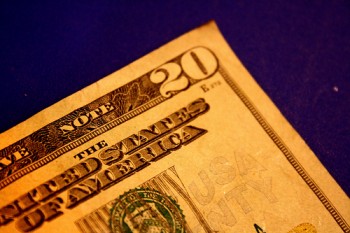Debt is tough. You know what you owe, and what you have, and that it won’t be enough. Creditors and debt collectors call every day to badger you for payment and you’re living under the threat of foreclosure, bank levies, wage garnishment, and repossession. Financial decisions are stressful in the best of circumstances – with a load of debt to handle, many consumers make the wrong choices despite having the best intentions.

If you’re struggling with debt, avoid these five big mistakes:
1. Taking cash advances on credit cards.
Sure, it’s a way to pay your electric bill this month, but it’s a bad move. First, you may not even be able to take a cash advance if you’re behind on your payments on the card and you may incur overdraft fees. Second, even if you can get a cash advance, the interest rate will be sky high. You’re adding that sum to your overall debt level at an interest rate approaching 30%. That adds up every month, spiraling into a great big bill for a relatively small amount of money up front.
If you take out cash advances, you must be especially careful of how you spend the money. If you use a cash advance for anything other than basic living necessities and later file for bankruptcy, you run the risk of a bankruptcy court dismissing your case for filing in bad faith. When you file for bankruptcy, most of your unsecured debt is forgiven. That opens the door for abuse of the bankruptcy system. The bankruptcy court wants to make sure you aren’t draining your cards and going on a shopping spree without any intention to ever pay the money back.
2. Borrowing from your retirement account.
More workers than ever are draining their retirement accounts, according to a recent Transamerica survey. Because their nest eggs aren’t big enough, almost 60% of workers are planning on working beyond the age of 65 or never retiring at all. More than half of workers are planning on working after retirement because of financial and healthcare-related reasons. If you’re considering raiding your retirement account to pay off debts now, just don’t do it. You’ll have to pay a large fee for pulling money out of your retirement account early, so it’s an expensive way to borrow.
Creditors generally can’t touch your retirement account if they come after you for collections, unless it’s for federal taxes, child support, or spousal support. In bankruptcy, your retirement account is safe from liquidation. If you pull the money out, your creditors may be able to claim it. The money is safe in your retirement account and you’re going to need it when you retire.
3. Refinancing your home to pay your credit card debt.
When you refinance your home, you’re putting it at risk for foreclosure. If you can’t pay your credit card bills now, you may not be able to pay down your home equity loan, either. Don’t put your home at risk to pay off your credit cards.
It’s safer and cheaper to deal with your credit card provider directly – you can seek a debt settlement or interest rate adjustment without putting your home at risk. Because credit card debt is unsecured, you’ll likely only have to pay a few cents on the dollar for it in bankruptcy. You’ll have to pay the full value of whatever debt you secure with your home.
4. Transferring real property out of your name to protect it from creditors.
If you decide to file for bankruptcy, your creditors and the court will examine your recent financial history to ensure that you’re filing in good faith. The court wants to make sure you’re not cheating your creditors out of what you owe them. If they find that you’ve transferred property to someone else in order to protect it from foreclosure, repossession, or other collection actions, you’re in trouble. Not only will the court void the transfer and move the property back to your name, it may dismiss your bankruptcy altogether. In order to refile, you’ll have to repay all of the filing and court fees and you may not get all of the protective benefits of the automatic stay.
5. Paying off secured debt with unsecured debt.
This is the flip side of refinancing your home in order to pay off your credit card. Credit cards carry a high rate of interest, so if you borrow on them to pay off secured debt, you’re adding debt that grows extremely fast to your already-large load. When you borrow to pay off debt, you’re not actually paying anything off. You’re keeping the same amount of overall debt and just moving it around. That’s not going to help you get out of debt.
Racking up a lot of unsecured debt will also draw the scrutiny of the bankruptcy court. If they think you’re trying to convert your secured debt (for which you’ll have to pay full value in bankruptcy) into unsecured debt (for which you’ll likely only pay pennies on the dollar), they may dismiss your case for filing in bad faith. If that happens you’ll have to face your creditors on your own.
Bankruptcy Is an Option
Filing for bankruptcy probably isn’t your first choice, but it may be your best one. It can wipe out all of your unsecured debt so you can focus on repaying only secured debt, such as your mortgage and auto loan. At the least, you owe it to yourself to avoid making the kind of mistakes that cut off the bankruptcy option. If you’re struggling with debt, reach out to one of our experienced bankruptcy attorneys to discuss your situation, your goals, and your options.